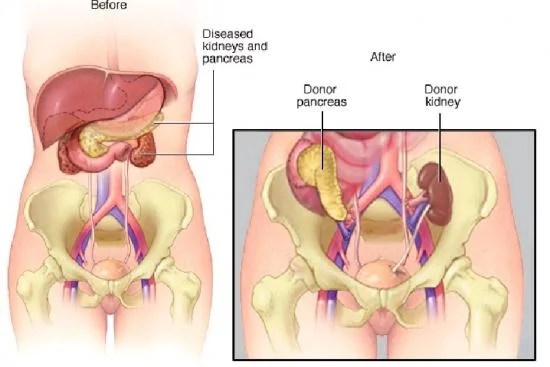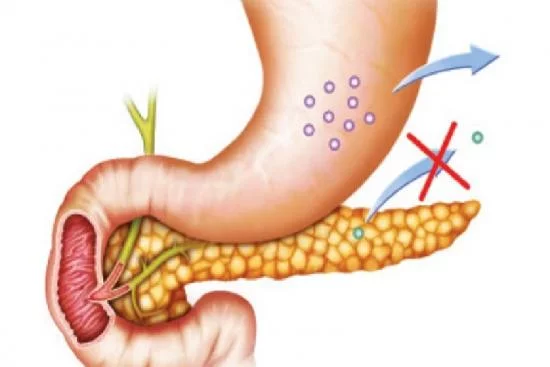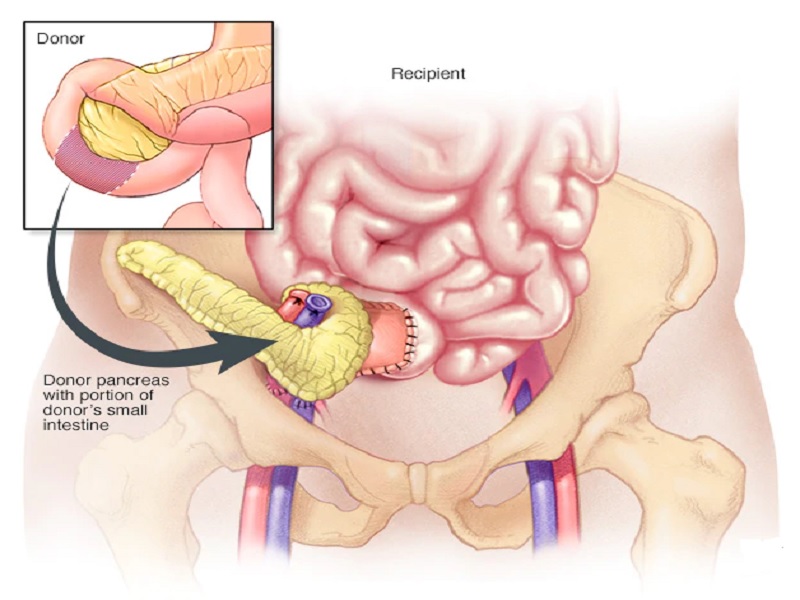What is a pancreas transplant?
A pancreas transplant in Turkey is an operation to treat insulin-dependent diabetes. A healthy insulin-producing pancreas from a recently deceased donor is given to a person with diabetes. This means that he can produce his own insulin and does not need to inject it.
- Patients with severe kidney disease
- Patients with acute hypoglycemia
- People with unstable type 1 diabetes and / or complicated by end-stage renal disease
- Infection
- Rejection of the transplant
- The operation lasts 4 to 5 hours
- Total patient and donor rest for one month
- Back to physical activities 2 to 3 months after the operation
What is the price in Turkey and Istanbul?
Our partner clinics in Turkey are the best qualified to give you a price offer that corresponds to the patient's condition. The price may depend on the reputation of the hospital and the doctor's experience. You can get the final cost of the pancreatic transplant only after consulting with a doctor.
Best Clinics with Verified Reviews

- Multispecialized hospital
- Hospital founded in 2007
- Very good reputation in ENT department

What are the steps of a pancreas graft surgery?
As with all organ transplants such as liver transplant, lung transplant, and heart transplant, it takes some time to get a compatible transplant. During this period, the patient is placed on a waiting list managed by Turquie santé.
With regard to the pancreas, the average waiting time has been less than one year in recent years. This time may vary depending on the specific case of each patient and the type of transplant (pancreas transplant or both kidney and pancreas transplants).
From a surgical point of view, it is necessary to prevent the grafted pancreas from secreting its digestive enzymes (pancreatic juices). This is done by injecting neoprene into the Wirsung canal or main pancreatic canal. Recovery from surgery is approximately one month.

Who can get a pancreas transplant?
Pancreas transplant is currently targeted in Turkey to people with unstable type 1 diabetes and/or those who have a complicated end-stage renal failure. Therefore, these patients suffer from both a total insulin deficiency and kidney complications requiring dialysis or kidney transplant.
If less than 100 pancreas transplants are performed each year in Turkey & Istanbul, it is partly because it has been believed that the only indication justifying a pancreas transplant is to associate it with a kidney transplant (renal failure is a common complication of diabetes).
Indeed, in diabetic patients, pancreas transplants that are associated with renal transplants have much better results than kidney transplants alone.

What are the effects of surgery on diabetes?
The results obtained after a pancreas transplant are very good, with about 90% graft survival at 1 year and 70% at 5 years.
The main advantage of pancreas transplant is that it can simply cure diabetes, it is the only treatment that can cure type 1 diabetes. In 76% of cases, insulin injections can be eliminated in less than a year. In addition, there are no more episodes of hypoglycemia.
Besides, following a pancreas transplant, degenerative complications are stabilized and affected functions are improved, including neurological and renal functions (the results are less evident on retinopathy).
Nevertheless, it is not without drawbacks. The pancreas transplant causes many complications and the risk of mortality exists (although it remains quite low). However, it is less important in the transplanted patient than in the diabetic patient on dialysis.
It is also important to know that a pancreas transplant, with or without a kidney transplant, requires a lifetime immunosuppressive treatment.
An alternative: Islet transplant of Langerhans
A new approach consists in grafting only the useful cells, the pancreatic beta cells (islets of Langerhans or islets, which represent 3% of its total volume),instead of the whole organ.
These endocrine cells synthesize several hormones: insulin, glucagon, somatostatin and pancreatic polypeptide.
Pancreatic islet cell transplant: for whom?
The Langerhans islet transplant is reserved for people with unstable type 1 diabetes without associated end-stage renal failure.
For these people, in whom insulin injection remains insufficient to ensure proper glycemic control, the risk of serious hypoglycemic accidents is important and the vital prognosis can be put at risk.
What are the results of pancreatic islet cell transplant?
This transplant technique avoids many side effects and the risks of very serious complications that invariably accompany the usual pancreas transplants.
As the islet injections go on, the patients need less and less insulin, and they no longer have hypoglycemia, which is likely to be life-threatening.
Share this page






